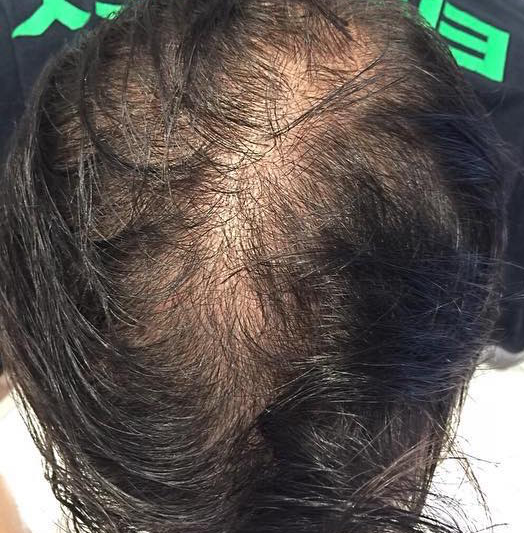Home / Common Concerns / Scalp Psoriasis
What Is Scalp Psoriasis?
Psoriasis is a skin disease and a disorder of the immune system. It is characterized by well-defined erythematous (reddish) plaques, with silvery scales on the skin. The skin cells in the affected areas can multiply ten times faster than normal cells.
As a result of the increased volume, the cells beneath the skin surface die and form the red plaques covered with loose, white skin.
The body parts that are prone to psoriasis include scalp, palms, soles, knees, elbows, and torso. The affected areas are itchy and painful. Often, cracks and bleeding occur.
The areas can spread and merge with one another, forming larger areas.
Causes of Psoriasis
Weakness / Inherited defect of the immune system.
Emotional stress.
Trauma and shock.
Obesity.
Viral infection.
Streptococcus infection.
Skin injury (cut, insect bite, sunburn).
Cold weather.
Smoking and alcohol consumption.
Drug addiction.
Use of medication like lithium, iodides, high blood pressure medicines, and anti-malarials. Scalp psoriasis is an inflammatory skin disorder that has symptoms like scaly patches, itching, redness, raised areas, bleeding, or hair loss or thinning.
If you are unsure as to whether or not you are affected by this condition, it is important to consider seeing a professional.
If your symptoms are visible on the superficial layers of the skin, the epidermis, then you can treat at home or with the assistance of a trichologist.
A correct diagnosis is fundamental to start healing scalp psoriasis. This scalp disorder, untreated, can result in hair follicle damage, hair loss, and/or infection.
Symptoms of Psoriasis
Psoriasis usually occurs all over your body, most commonly on the elbows and knees. When found on the scalp, psoriasis can be severe, causing very adherent scales and underlying redness. Itching of the scalp can occur, but this is strangely not always the case.
Psoriasis and Hair Loss
Psoriasis usually does not cause large amounts of hair loss. However, if the scaling on your scalp is very tight, your hairs’ diameter may change and there can be breakage. Psoriasis is often confused with another severe scalp condition, pityriasis amientacea, a scaling of the scalp which causes distinct hair loss.
Treatment in our Clinic
Treatment of psoriasis depends on the severity of the condition. Mild cases can usually be cleared with the use of prescription creams and tar-based shampoos. However, treatment of more severe psoriasis needs care and patience. Removal of the scales is time-consuming and has to be done gently in order to avoid damage.
At Nina Ross Hair Therapy we soften and then remove the scales (using specially formulated creams) under a warm steamer and infrared lamps. Such treatments can give considerable relief, but repeat treatments are almost always necessary. Treatment with ultraviolet light can also help, in fact, psoriasis often improves on its own during the summer months when you are exposed to more UV rays.
What can you do about Psoriasis?
After a careful physical and Trichology examination, the severity of the disorder is assessed.
The best way to treat Psoriasis is to start with creating a clean, acidic, stimulated, hydrated environment on the surface of the scalp.
Topical emollients are given to soothe the inflamed scalp.
Advice to stop oiling, since oil many times causes aggravation, is given
Any commercial product is advised to be refrained from, as the scalp is very sensitive and scalp psoriasis cure is challenging.
If needed, a specific amino acid is given in therapeutic dosage only after ruling out uncontrolled blood pressure and increased levels of uric acid.
Guidance is given on cautions to be followed so as avoid any relapses.
Learn more about:
Why Nina Ross Hair Therapy?
state of the art + PERSONALIZED TREATMENTS
Founder of NRHT - Dr. Nina Lassiter, BCDHH
Transformations
View Real Patient Before & Afters
Reviews
see testimonials from current clients
Get answers from a specialist
Request a phone call and get your questions answered
Call 678.561.4522










